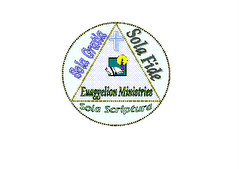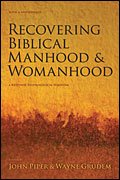23 March 2014
Book Description-260: INVITATION TO BIBLICAL INTERPRETATION (Prof. Andreas J. Köstenberger, Ph.D. and Prof. Richard D. Patterson, Ph.D.)
Many doctrinal errors today are affected by biblical interpretation fallacies. So, how do we interpret the Bible accurately? Then, how do we integrated Biblical interpretation with application in preaching and devotional?
Find the answer in the book:
INVITATION TO BIBLICAL INTERPRETATION:
Exploring the Hermeneutical Triad of History, Literature, and Theology
by:
Prof. Andreas J. Köstenberger, Ph.D.
and
Prof. Richard D. Patterson, Ph.D.
Publisher: Kregel Publication, Grand Rapids, 2011
In this book, Dr. Kostenberger and Dr. Patterson explain how to interpret Bible by integrating history, literature, and theology. It means that we explore historical-cultural background of the Bible and then we identify the literature (canon, genre, and language) in the Bible, and we apply the investigation in theology. In historical-cultural background of the Bible, we must understand and study the history of the Israel since Primeval Period until New Testament period. In this chapter, they explain about how we study that history from primary and secondary sources. In literature, first of all, we explore canonical chronology of the Bible from Old and New Testament. It means that when we interpret one theme in one book in the Bible, we must consider what other books in the Bible teach about that thing. Then, we should understand genre in books of the Bible, such as historical narrative, poetry, wisdom, prophecy, parables, epistles, and apocalyptic literature. After that, we must study the language, such as: context of the Bible, words (semantics), and figurative language. Finally, what we study from history and literature of the Bible affect our understanding in building Biblical theology from the Bible we explore. The uniqueness of this book is every chapter is ended by the example how to exegete a passage (or some passages) in the Bible. In the final chapter, what we study from history, literature, and theology should be applied in interpreting the Bible for preaching and devotion, so that we can understand and apply the Word of God in our daily life.
Endorsement:
"The great merit of Kostenberger's and Patterson's volume is its three-dimension account of biblical interpretation. The authors rightly focus on the history, literature, and theology of the Bible--what they call the hermeneutical triad. Call it hermeneutics in real 3-D. A three-stranded hermeneutical cord may not be easily broken, but it's easy to grasp by following this introductory textbook. Another plus is the authors' reminder that biblical interpretation is not only about method but about virtue: a heartfelt humility before the divine text is as important as any heady procedure."
Prof. Kevin J. Vanhoozer, Ph.D.
Research Professor of Biblical and Systematic Theology at Trinity Evangelical Divinity School, U.S.A.; Bachelor of Arts (B.A.) from Westmont College; Master of Divinity (M.Div.) from Westminster Theological Seminary, U.S.A.; and Doctor of Philosophy (Ph.D.) from Cambridge University, England.
"There are certain topics of must reading for serious Bible students--hermeneutics is at the top. There are certain books of must reading for a topic. Andreas Kostenberger's work on hermeneutics is one of them. It is clear, concise, and yet deep, and manages to cover most of the needed areas. Thus it becomes an invaluable guide for the student working through the labyrinth of issues that make up the task of biblical interpretation. It will enable the reader to bridge the gap from understanding biblical portions in their original cultural context and from showing their relevance to a modern audience. I recommend it very highly." –
Prof. Grant R. Osborne, Ph.D.
Professor of New Testament, Trinity Evangelical Divinity School; members of the Society of Biblical Literature, the Evangelical Theological Society, dan the Institute of Biblical Research; B.A. in Mission and Pastoral Leadership from Fort Wayne Bible College; Master of Arts (M.A.) in New Testament from Trinity Evangelical Divinity School; Ph.D. in New Testament from the University of Aberdeen, Skotlandia, U.K.; and did academic research in the University of Cambridge, England and the University of Marburg, Germany
"Invitation to Biblical Interpretation is destined to become the standard textbook for colleges and seminaries for the foreseeable future. It is simply the best work available in the field of biblical hermeneutics. It is comprehensive in its breadth and in depth at all the right places. And it is well written! I will be certain to make it my anchor text as I teach biblical hermeneutics."
Rev. Prof. Daniel L. Akin, Ph.D.
President and Professor of Preaching and Theology at Southeastern Baptist Theological Seminary and pastor at Imago Dei Church in Raleigh, NC; B.A. in Biblical Studies from The Criswell College; M.Div. from Southwestern Baptist Theological Seminary; and Ph.D. in Humanities from University of Texas at Arlington
"This introduction to hermeneutics is outstanding in several ways: It takes full account of the unique divine authorship of the Bible; it is clear, readable, and doctrinally sound; it attends to the spiritual state of the interpreter; it provides detailed guidance for understanding the historical background, literary and linguistic features, and theological significance of each text; it is coauthored by an Old Testament and a New Testament professor; and it insists that right interpretation must end in application to life. It is an excellent book that will be widely used as a standard textbook for years to come." –
Prof. Wayne Grudem, Ph.D.
Research Professor of Theology and Biblical Studies, Phoenix Seminary; B.A. from Harvard University; M.Div. from Westminster Theological Seminary, U.S.A.; and Ph.D. from University of Cambridge, U.K.
"This book on biblical interpretation combines training in exegesis with a basic knowledge of hermeneutics. It urges careful consideration of historical, literary, and theological issues. Thus, historically, it includes helpful chronological charts, and much on cultural history. Its literary focus includes canon, genre, and language. Its theological dimension includes application. Genre is crucial: thus narrative, poetry and wisdom are distinguished in the Old Testament; and parable, epistles, and apocalyptic, in the New. Why responsible interpretation requires toil and labor receives careful explanation. This book contains plenty of common sense, sanity, and love of Scripture. I commend it especially to students, teachers, and even pastors, as helping all of us to use the Bible responsibly and fruitfully." –
Prof. Anthony C. Thiselton, Ph.D.
Professor of Christian Theology at University of Nottingham; Bachelor of Divinity (B.D.) and Master of Theology—M.Th. from King’s College, London; Ph.D. from the University of Sheffield; Doctor of Divinity (D.D.) from the University of Durham. He received an honorary doctorate from the University of Chester in March 2012 and Honorary Fellow of Cranmer Hall; fellow of Kings College London and fellow of the British Academy.
"Don't be misled by the title; this is no typical hermeneutics primer. Here, in considerable detail, covering both introductory and more advanced topics, and interacting with the most current and classic scholarship, is a one-stop shopping resource for the entire exegetical process for the most capable seminary students, pastors, and teachers. Particularly distinctive and/or helpful are the discussions of Old Testament chronology, interpreting Revelation, discourse analysis, grammatical fallacies, biblical theology, and homiletical method. Warmly recommended."
Prof. Craig L. Blomberg, Ph.D.
Distinguished Professor of New Testament, Denver Seminary B.A. Summa Cum Laude from Augustana College; M.A. from Trinity Evangelical Divinity School, U.S.A.; and Ph.D. from University of Aberdeen, Scotland.
"This is indeed a warm invitation to interpret the Bible responsibly, passionately, and practically. Showing readers how to explore the context, literature, and theology of the biblical books, the authors provide a guide to all phases of interpretation. The work climaxes in particularly helpful instructions on how to move from study of the text to crafting of the sermon. Novices should not be put off by the size of the volume. Although comprehensive in scope and breadth, the style of writing and the practical helps at the end of each chapter ensure that the concepts conveyed will be readily grasped even by non-professionals. If students of Scripture are seeking a single volume to which they can turn for practical assistance in interpretation, this is the book to get. Thank you, Kregel Publishers, for making their work available to us."
Prof. Daniel I. Block, Ph.D.
Gunther H. Knoedler Professor of Old Testament at Wheaton College; Diploma in Biblical Studies 1965, Bethany Bible Institute, Hepburn, Saskatchewan; Bachelor of Education—B.Ed. in General Education from University of Saskatchewan, Saskatoon, Saskatchewan; B.A. in History/German from University of Saskatchewan, Saskatoon, Saskatchewan; Foreign Studies in German and Geistesgeschichte, 1968-1968 in Friedrich Alexander University, Erlangen, Germany; M.A. in Old Testament from Trinity Evangelical Divinity School, Deerfield, Illinois; and Doctor of Philosophy—D.Phil. in Semitics: Classical Hebrew, School of Archaeology and Oriental Studies from University of Liverpool, Liverpool, England
Biography of the authors:
Prof. Andreas Johannes Köstenberger, Ph.D. is the Director of Ph.D. Studies and Senior Research Professor of New Testament and Biblical Theology at Southeastern Baptist Theological Seminary in Wake Forest, North Carolina, where he has taught since 1996. He is also editor of the Journal of the Evangelical Theological Society (JETS) and the Founder and President of Biblical Foundations™ (www.biblicalfoundations.org),an organization devoted to encouraging a return to the biblical foundations in the home, the church, and society. He is also the Director of Acquisitions for B&H Academic.
Köstenberger hold M.Div. in Cross-Cultural/New Testament/Counseling from Columbia Biblical Seminary and Ph.D. in New Testament/Biblical Studies from Trinity Evangelical Divinity School (TEDS); and Mag. et Dr. rer. soc. oec. (Masters and Doctorate in Social and Economic Sciences) from the Vienna University of Economics. His recent publications include the books Excellence: The Character of God and the Pursuit of Scholarly Virtue, Marriage and the Family: Biblical Essentials (written with David W. Jones), and The Lion and the Lamb: New Testament Essentials from The Cradle, the Cross, and the Crown (written with L. Scott Kellum and Charles L. Quarles). He also contributed a commentary on John in the Baker Exegetical Commentary Series and wrote Salvation to the Ends of the Earth (with Peter O’Brien) and The Book Study Concordance of the Greek New Testament (with Raymond Bouchoc).
Prof. Richard D. Patterson, Ph.D. is chairman of the Department of Biblical Studies and professor of Semitic Languages and Literatures at Liberty University, Lynchburg, Virginia. He hold Bachelor of Arts (A.B.) from Wheaton College; M.Div. from Northwest Baptist Theological Seminary; Master of Theology (Th.M.) from Talbot Theological Seminary; M.A. and Ph.D. from University of California, Los Angeles. Dr. Patterson’s accomplishments include a wealth of publications. His expertise can be found in the many published articles and commentaries, such as The Expositor’s Bible Commentary. In addition, he was a contributor and editor for several different Bible translations. Dr. Patterson has also authored or co-authored several books. One of these is “Face to Face With God: Human Images of God in the Bible” published by Biblical Studies Press 2008. He also has written numerous articles for Grace Theological Journal, the Journal of the Evangelical Theological Society, and other scholarly journals.
Subscribe to:
Comments (Atom)





